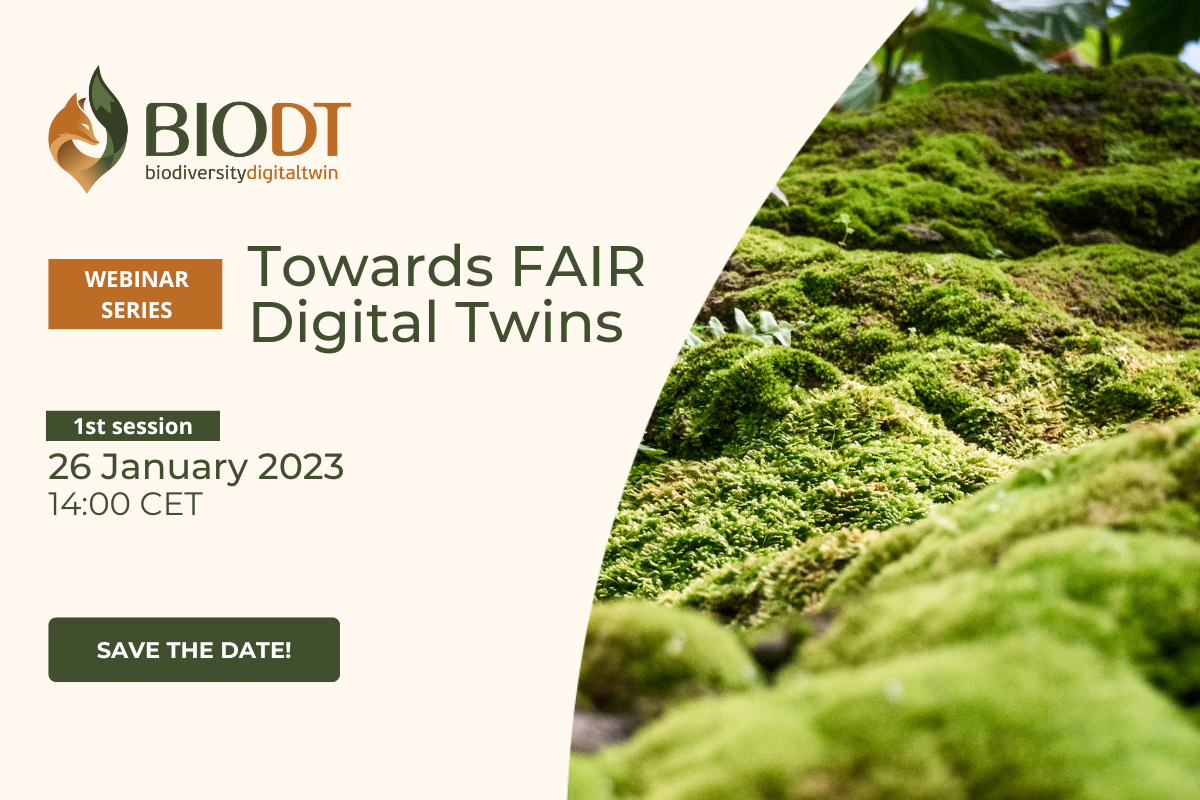
The Biodiversity Digital Twin's design, implementation, and maintenance present several issues, including the linkage and integration of various data types and related computing services. Consequently, FAIR principles are extremely important, especially during the modelling and prototyping process.
Over the last few months, the BioDT team has been discussing how to understand the FAIRness of the data sources. In particular, the team engaged in improving "Quality of Data, Workflows and Models through FAIR Principles" is tasked with delivering an implementation plan for FAIR Digital Objects over the FAIR data designs of the relevant Research Infrastructures. The team is working to find gaps in understanding FAIR implementation and how it connects to BioDT, even though FAIR principles and the technological elements supporting Digital Twins are not new.
To facilitate discussions around this topic, the BioDT consortium is organising a series of online webinars to stimulate conversations around FAIR with a focus on BioDT and the digital twinning paradigm. Experts and practitioners that deal with different aspects of FAIR implementation and digital twins are invited to join to bring forward discussions that help understand FAIR implementation in a more actionable way.
The first session took place on 26 January at 14:00 (CET) and provided a conceptual overview of FAIR principles applicable on digital twinning.
Watch the recording
Agenda
- 14:00 - 14:05: Welcome and introduction
- 14:05 - 14:35: Presentation of FAIR principles - from theory to practice
- 14:35 - 15:00: Q&A
Speakers and presentations
-
Yifat Dzigan
-
Yifat Dzigan is Section Head of Environment & Sustainability at The Netherlands eScience Center. Yifat will briefly present the activities of the eScience Center, and its expertise in the environment & Sustainability disciplines, after which her colleagues, Peter Kalverla and Robin Richardson, will provide examples of FAIR implementation from the eWaterCycle and the FAIR is as FAIR does projects.
- Robin Richardson
-
Robin Richardson is a senior Research Software Engineer at The Netherlands eScience Center. Robin will provide an example of the implementation of FAIR from the FAIR is as FAIR does project, focusing on the combination of semantic technologies with scientific workflows.
- Peter Kalverla
-
Peter Kalverla is Research Software Engineer at The Netherlands eScience Center. Peter will talk about the practical application of FAIR principles in the eWaterCycle project. eWaterCycle is an online platform for FAIR and open hydrological modelling. Peter will talk about some of the challenges they faced while developing this platform, and possible solutions.
This event is part of a series of webinars focused on promoting the role played by FAIR principles in the digital twin. For more information on session 2 of this series, visit this page.